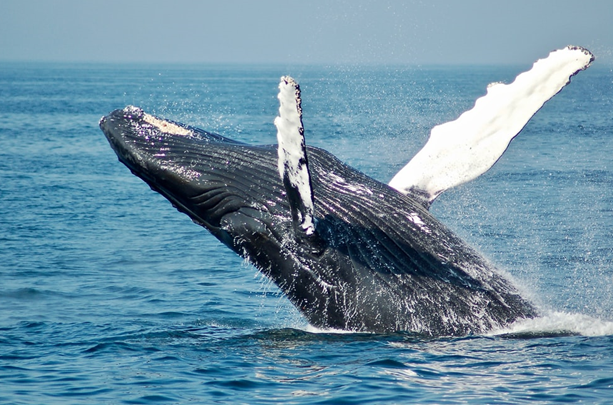
On Yom Kippur [Day of Atonement] Jews read the story of Jonah and the whale.
It begins when God gives Jonah a mission, to pass a message to the people of Nineveh that they need to repent their evil ways, to change their attitudes to each other from hatred to love.
Jonah dislikes the mission and escapes it by boarding a ship and sailing away. His getaway sparks off a fierce storm. The sailors eventually comprehend that Jonah is behind the storm, and as a punishment, they push him overboard. In the ocean, Jonah becomes swallowed by a whale, spends three days and three nights in its belly, and afterward gets discharged to land, where he then travels to Nineveh to complete his mission.
Fast forward to the 21st century. Like ancient Nineveh, we have cultivated a culture where hate and separation reign. A storm is raging due to polarized attitudes and the predominance of ego in our actions. Nature has sent COVID-19 our way, thus slamming us into the belly of the whale. While there, we have the opportunity, as Jonah did, to scrutinize how we ended up in this vile place and to change our own responses to the laws of nature.
This year, Yom Kippur falls in the middle of a tenacious pandemic, giving special meaning to the idea of atonement and repentance. The interesting thing about Jonah’s saga is that he did not repent for something he did, but for what he did not do, travel to Nineveh as commanded. His mission was to explain to the people of Nineveh that their egoistic hate for each other was the source of their problems and to teach them that if they connected together, they would again prosper.
We are beginning to ask ourselves why Nature is treating us so badly. By posing such a question, we are seeking a way to atone, to do whatever is necessary to restore our sense of security and prosperity. There are many social and political solutions proposed, but we have so far not begun to fathom what the true problem is—our unbridled, self-serving actions, the result of the force that pushes us to do whatever we consider necessary to get what we want when we want it. This force is called ego.
Following soon after Rosh Hashana [new year], Yom Kippur offers an opportunity to make some new year’s resolutions, so to speak. We think about what we didn’t accomplish last year and resolve to do better in the future. There is always an overall goal to improve ourselves in some way.
The stakes are much higher for us than they were for Jonah. He was facing a city in turmoil. We are living in a world that is in utter chaos and are facing the possibility of our own extinction. The cause of the discord, however, is the same as it was in Nineveh—unfounded hatred toward one another. Our 21st century atonement needs to be collective and resolute.
But how?
The first step is to understand that the great law of nature (and of the holy Torah, and of the New Testament, and of the noble Quran) is to love one another and that we are firmly bound by that law. When we can fully comprehend that, we are able to take responsibility for the actions we did not perform in service to that law. This is our only sin.
We examine our past actions of omission. Not offering assistance to a person in need. Not halting gossip. Not protesting oppressive social and political policies. Not listening carefully to an opinion opposite to mine in order to promote understanding. Not wearing a mask to protect others from Covid-19. Not promoting kindness on social media. Not recycling. Not practicing kindness, honesty, altruism and purposeful intention every day toward everyone. In other words, not managing my egoistic impulses, but allowing them to run rampant.
Have you noticed anything about the few examples above? They are all actions toward others, not for self-benefit. This is the spirit that we must carve onto our bones and implant into in our hearts if we are to survive. It’s the only way to calm nature because such an inner attitude is in alignment with all of her laws—interconnection, altruism, balance, harmony, interdependence, unity.
In the end, Jonah had to honor what he was commanded to do, so he went on to Nineveh. Atonement is for all of us. Our reparation is to change our attitudes and our behavior. Our reconciliation is with Nature and with the upper force that manages it all.

